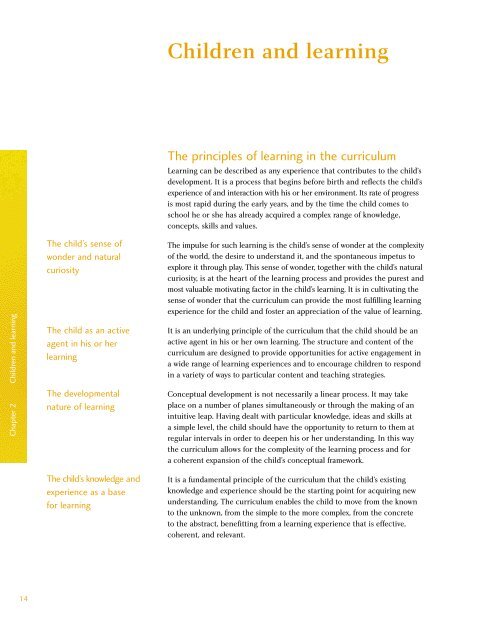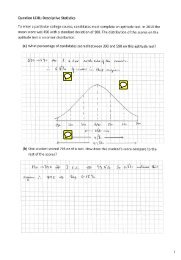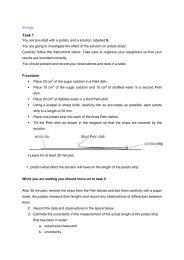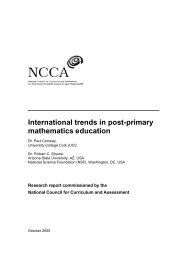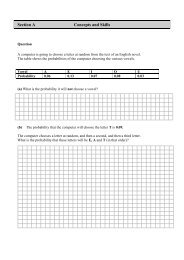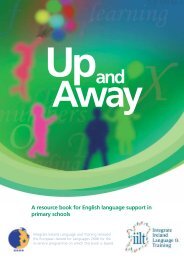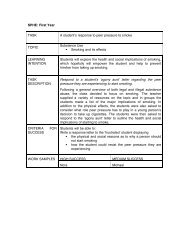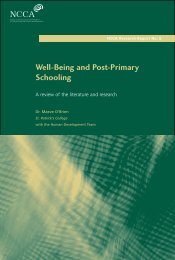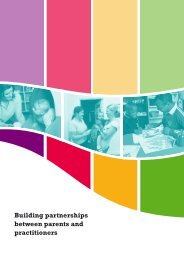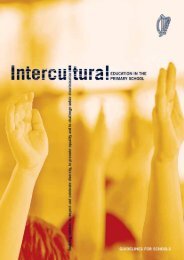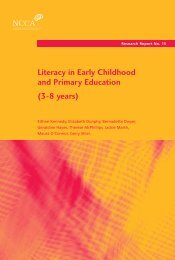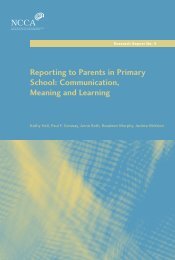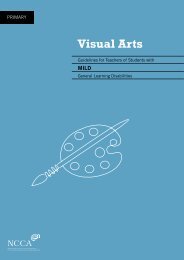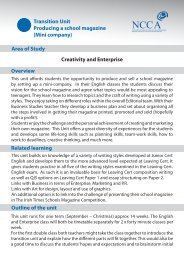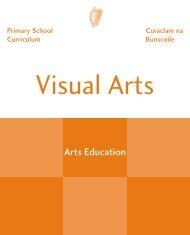Primary School Curriculum Curaclam na Bunscoile - NCCA
Primary School Curriculum Curaclam na Bunscoile - NCCA
Primary School Curriculum Curaclam na Bunscoile - NCCA
You also want an ePaper? Increase the reach of your titles
YUMPU automatically turns print PDFs into web optimized ePapers that Google loves.
Chapter 2 Children and learning<br />
14<br />
The child’s sense of<br />
wonder and <strong>na</strong>tural<br />
curiosity<br />
The child as an active<br />
agent in his or her<br />
learning<br />
The developmental<br />
<strong>na</strong>ture of learning<br />
The child’s knowledge and<br />
experience as a base<br />
for learning<br />
Children and learning<br />
The principles of learning in the curriculum<br />
Learning can be described as any experience that contributes to the child’s<br />
development. It is a process that begins before birth and reflects the child’s<br />
experience of and interaction with his or her environment. Its rate of progress<br />
is most rapid during the early years, and by the time the child comes to<br />
school he or she has already acquired a complex range of knowledge,<br />
concepts, skills and values.<br />
The impulse for such learning is the child’s sense of wonder at the complexity<br />
of the world, the desire to understand it, and the spontaneous impetus to<br />
explore it through play. This sense of wonder, together with the child’s <strong>na</strong>tural<br />
curiosity, is at the heart of the learning process and provides the purest and<br />
most valuable motivating factor in the child’s learning. It is in cultivating the<br />
sense of wonder that the curriculum can provide the most fulfilling learning<br />
experience for the child and foster an appreciation of the value of learning.<br />
It is an underlying principle of the curriculum that the child should be an<br />
active agent in his or her own learning. The structure and content of the<br />
curriculum are designed to provide opportunities for active engagement in<br />
a wide range of learning experiences and to encourage children to respond<br />
in a variety of ways to particular content and teaching strategies.<br />
Conceptual development is not necessarily a linear process. It may take<br />
place on a number of planes simultaneously or through the making of an<br />
intuitive leap. Having dealt with particular knowledge, ideas and skills at<br />
a simple level, the child should have the opportunity to return to them at<br />
regular intervals in order to deepen his or her understanding. In this way<br />
the curriculum allows for the complexity of the learning process and for<br />
a coherent expansion of the child’s conceptual framework.<br />
It is a fundamental principle of the curriculum that the child’s existing<br />
knowledge and experience should be the starting point for acquiring new<br />
understanding. The curriculum e<strong>na</strong>bles the child to move from the known<br />
to the unknown, from the simple to the more complex, from the concrete<br />
to the abstract, benefitting from a learning experience that is effective,<br />
coherent, and relevant.


